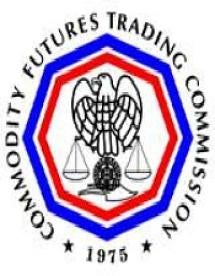On May 8, 2014, at the Futures Industry Association’s Annual Legal and Compliance Conference, Gretchen L. Lowe, the Acting Director of the Commodity Futures Trading Commission’s Division of Enforcement, spoke to attendees about Enforcement’s priorities, its new authority and the “hot issues” of the day, as she sees them. Her comments provide a number of critical insights for industry participants.
First and foremost, Ms. Lowe described Enforcement’s priorities. She noted that Enforcement’s top priority is its litigations. In making this comment, she stated the obvious: this is the CFTC’s most significant period of litigation in recent memory, in a time of limited resources. The CFTC’s “big cases” include those arising from the catastrophic failures of futures commission merchants MF Global and PFG Best, as well as cases arising out of alleged manipulation of the crude oil, palladium and platinum markets.
Next, she pointed out that the CFTC is actively using its new authority, and expects to continue to do so as the Dodd-Frank rules “settle in.” Ms. Lowe cited new cases against the so-called “London Whale” (reckless use of a manipulative device or contrivance) and Panther Energy (a spoofing case). Another aspect of the CFTC’s new authority that she described was its authority to pursue all false statements made to the Commission, in any context. This new authority, under Section 6(c)(2) of the Commodity Exchange Act (codified at 7 U.S.C. § 9(2)), is a recklessness-based offense, imposing liability on any party making a statement if the party “knew or reasonably should have known the statement to be false or misleading.” According to Ms. Lowe, Enforcement will be fair but aggressive in its efforts to enforce this standard, and has brought 2 matters under this authority already this year.
Ms. Lowe also emphasized that Enforcement will continue to aggressively enforce the Commodity Exchange Act and related rules, with a special emphasis on bringing statement-making cases. Areas of specific concern are cases involving internal control and supervision failures, under-capitalization, segregated funds violations, and any cases involving customer protection. Enforcement will vigorously investigate such matters, Ms. Lowe emphasized, and will bring cases when warranted—even if it takes some time to get to each case, given the Commission’s resource constraints.
In this context—one of vigorous investigations and (although perhaps delayed) enforcement—what is an industry participant to do? From Ms. Lowe’s perspective, it is simple: self-disclose violations. This is, of course, one factor in the CFTC’s Cooperation Factors in Enforcement Division Sanction Recommendation. After self-disclosure, Enforcement will perform an investigation and may or may not recommend an enforcement action. Although there is no “bright-line test,” Ms. Lowe indicated that it would depend on how long the non-compliance condition has persisted and how well it is known by senior management in an organization. In short, Ms. Lowe is sending a message that Enforcement will vigorously pursue and enforce all Commission laws and rules—so each regulated entity better self-report to avoid enforcement action, although there can be no assurance that self-reporting will actually avoid enforcement action.
No real surprises in Ms. Lowe’s comments, perhaps. One would expect the chief (or acting-chief) of Enforcement would aggressively tout the Division’s record and zealously advertise the Division’s future course of action. But, in a time of significant market disruption, massive sets of new rules and regulations, and a limited budget, one might hope for more.
Here, for example, one might wish for a little more guidance as to when self-disclosure helps avoid enforcement action or when it does not. Such guidance would help the legally compliant organization better order its conduct when it finds the one-off rule violation. Usually, in a typically-compliant organization, the failure to comply stems from (i) a good faith mistake of fact, (ii) an erroneous understanding of the laws or rules or (iii) a rogue employee that the organization will address as aggressively as possible. In the new world order, compliance failures likely will be more pronounced in the short term, as organizations prepare systems to comply with the new rules and regulations for over-the-counter derivatives, for example.
The expectation of reasonable give-and-take between the regulated entity and the regulators likely would lead to greater compliance at less cost for the industry. The beat-cop chasing window-breakers mentality that Ms. Lowe’s comments seem to reflect, on the other hand, seems likely to cause the inadvertent window-breaker to hide for fear of disproportionate punishment. Or, it may cause those concerned about whether certain actions by their organizations to hide them under the rug rather than bring them to the attention of legal and compliance personnel.
One way or the other, it would benefit the industry to have more guidance as to when self-reporting is helpful. Greater clarity is more likely to lead to more transparency than not—and transparency is what the industry needs more than anything else.



 i
i

